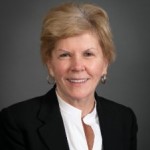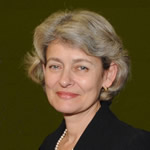Study Group Archive
This group is designed for anyone interested in learning more about cultural diplomacy and soft power in addressing foreign relations. Over the course of four sessions per semester, participants will become familiar with the history of cultural diplomacy and will better understand how the power of the arts has repeatedly been deployed by governments to help achieve foreign policy objectives. The group will analyze historical examples and hear from current practitioners. Furthermore, the group will be asked to envision future uses of cultural diplomacy as a tactic for addressing current foreign policy challenges.
Participants will:
- Gain an understanding of cultural diplomacy and its relevance to the government and artistic sector.
- Learn about important global cultural diplomacy initiatives and analyze their outcomes.
- Explore the use of cultural diplomacy and soft power as tools to further U.S. foreign policy objectives.
- Understand public diplomacy and how it differs from cultural diplomacy.
- Assess present-day foreign affairs and national security challenges in a cultural context, and consider how cultural diplomacy and soft power can play a role in seeking resolutions.
- Discuss why cultural diplomacy is not always successful and what can be done to prevent this from happening.
Fall Study Group sessions will begin in October 2022.
Study Group Fall Sessions
Oct 7th, 21st, Nov 4th, 18th, Dec 9th 2022; 10:30-12am EST
Virtual Sessions held via Zoom
Registration required
The Soft Power & Cultural Diplomacy Study Group is designed for anyone interested in learning more about these two topics in addressing foreign relations. Over the course of four sessions, participants will become familiar with the history of cultural diplomacy and will better understand how the power of the arts has repeatedly been deployed by governments to help achieve foreign policy objectives. The group will analyze historical examples and hear from current practitioners. Furthermore, the group will be asked to envision future uses of cultural diplomacy as a tactic for addressing current foreign policy challenges.
Key Learning Outcomes
Participants will:
- Gain an understanding of cultural diplomacy and its relevance to the government and artistic sector.
- Learn about important global cultural diplomacy initiatives and analyze their outcomes.
- Explore the use of cultural diplomacy and soft power as tools to further U.S. foreign policy objectives.
- Understand public diplomacy and how it differs from cultural diplomacy
- Assess present-day foreign affairs and national security challenges in a cultural context, and consider how cultural diplomacy and soft power can play a role in seeking resolutions.
- Discuss why cultural diplomacy is not always successful and what can be done to prevent this from happening.
Readings:
All required readings will be provided in advance
1. Searching for a Cultural Diplomacy, Jessica C.E. Gienow-Hecht and Mark C Donfried, Introduction (p: 3-25)
2. The History of United States Cultural Diplomacy 1770 to the Present Day, Michael L Krenn
Session 1 – What is Cultural Diplomacy?
Friday, Oct 7th, 10:30am-12:00pm ET
Virtual: Zoom
Part I: Study
The difference and similarities between public diplomacy, cultural diplomacy and soft power
What is culture?
Role of digital diplomacy in the 21st century
Part II: Guest Speaker: Prof. Nicholas Cull, University of Southern California
 Nick Cull is professor of Public Diplomacy at the University of Southern California’s Annenberg School for Communication, where he is a fellow of both the Centre for Communication Leadership and the Center on Public Diplomacy. Originally from Britain, he is a well-known historian of the role of culture and communication in foreign policy. His numerous published works include the standard introduction to the field: Public Diplomacy: Foundations for Global Engagement in the Digital Age (Polity, 2019) two volumes on the history of the United States Information Agency and a book on British propaganda towards the US during the run-up to Pearl Harbor. He has often advised and trained diplomats and has worked especially closely with the US Foreign Service Institute, the British Foreign Office, British Council and foreign ministries of Canada, Mexico, South Korea and Switzerland. He is currently completing a major book on the role of public diplomacy in the battle over Apartheid in South Africa and a shorter volume of essays expanding on his notion of Reputational Security. He tweets as @NickCull and is co-host (with Simon Anholt) of the podcast People, Places, Power.
Nick Cull is professor of Public Diplomacy at the University of Southern California’s Annenberg School for Communication, where he is a fellow of both the Centre for Communication Leadership and the Center on Public Diplomacy. Originally from Britain, he is a well-known historian of the role of culture and communication in foreign policy. His numerous published works include the standard introduction to the field: Public Diplomacy: Foundations for Global Engagement in the Digital Age (Polity, 2019) two volumes on the history of the United States Information Agency and a book on British propaganda towards the US during the run-up to Pearl Harbor. He has often advised and trained diplomats and has worked especially closely with the US Foreign Service Institute, the British Foreign Office, British Council and foreign ministries of Canada, Mexico, South Korea and Switzerland. He is currently completing a major book on the role of public diplomacy in the battle over Apartheid in South Africa and a shorter volume of essays expanding on his notion of Reputational Security. He tweets as @NickCull and is co-host (with Simon Anholt) of the podcast People, Places, Power.
YouTube: CDI Session 1
Session 2 – Role of Culture in Diplomacy
Friday, Oct 21st, 10:30am-12:00pm ET
Virtual: Zoom
Part I: Study
United Nations Peacekeeping
Key Questions:
How can we measure outcomes in cultural diplomacy efforts?
Part II: Guest Speaker: Jane Holl Lute, Strategic Director, SICPA North America
 Ms. Jane Holl Lute serves as Strategic Director for SICPA North America, a company that provides best in class solutions to protect the integrity and value of products, processes, and documents, including most of the world’s banknotes. Ms. Lute also serves as Special Advisor to the Secretary-General of the United Nations, where she has held several positions in peacekeeping and peace building. Ms. Lute served as Deputy Secretary for the U.S. Department of Homeland Security from 2009-2013. She also served as Chief Executive Officer of the Center for Internet Security (CIS), an operating not-for-profit organization and home of the Multi-State Information Sharing and Analysis Center (MS-ISAC) providing cybersecurity services for state, local, tribal, and territorial governments. Ms. Lute has served on several international commissions focused on cybersecurity and the future of the Internet. She currently serves on the boards of Union Pacific Railroad, Marsh McLennan, and Royal Dutch Shell. She began her distinguished career in the United States Army and served on the National Security Council staff under both Presidents George H.W. Bush and William Jefferson Clinton. Ms. Lute holds a Ph.D. in political science from Stanford University and a J.D. from Georgetown University. She is a member of the Virginia bar.
Ms. Jane Holl Lute serves as Strategic Director for SICPA North America, a company that provides best in class solutions to protect the integrity and value of products, processes, and documents, including most of the world’s banknotes. Ms. Lute also serves as Special Advisor to the Secretary-General of the United Nations, where she has held several positions in peacekeeping and peace building. Ms. Lute served as Deputy Secretary for the U.S. Department of Homeland Security from 2009-2013. She also served as Chief Executive Officer of the Center for Internet Security (CIS), an operating not-for-profit organization and home of the Multi-State Information Sharing and Analysis Center (MS-ISAC) providing cybersecurity services for state, local, tribal, and territorial governments. Ms. Lute has served on several international commissions focused on cybersecurity and the future of the Internet. She currently serves on the boards of Union Pacific Railroad, Marsh McLennan, and Royal Dutch Shell. She began her distinguished career in the United States Army and served on the National Security Council staff under both Presidents George H.W. Bush and William Jefferson Clinton. Ms. Lute holds a Ph.D. in political science from Stanford University and a J.D. from Georgetown University. She is a member of the Virginia bar.
YouTube: CDI Session 2
Session 3 – Understanding Digital and Cultural Diplomacy
Friday, Nov 4th, 10:30am-12:00pm ET
Virtual: Zoom
Part I: Study
Defining digital diplomacy and understanding its role in international relations
Non-government cultural diplomacy
Key Questions:
How can we distinguish between propaganda and digital diplomacy?
Part II: Guest Speaker: Professor Corneliu Bjola, Oxford University
 Corneliu Bjola is Associate Professor in Diplomatic Studies at the University of Oxford and Head of the Oxford Digital Diplomacy Research Group. He also serves as a Faculty Fellow at the Center on Public Diplomacy at the University of Southern California and as a Professorial Lecturer at the Diplomatic Academy of Vienna. He has published extensively on issues related to the impact of digital technology on the conduct of diplomacy with a recent focus on public diplomacy, international negotiations, and methods for countering digital propaganda. His recent co-edited volume “Digital Diplomacy and International Organizations: Autonomy, Legitimacy and Contestation” (Routledge, 2020) examines the broader ramifications of digital technologies on the internal dynamics, multilateral policies, and strategic engagements of international organisations.
Corneliu Bjola is Associate Professor in Diplomatic Studies at the University of Oxford and Head of the Oxford Digital Diplomacy Research Group. He also serves as a Faculty Fellow at the Center on Public Diplomacy at the University of Southern California and as a Professorial Lecturer at the Diplomatic Academy of Vienna. He has published extensively on issues related to the impact of digital technology on the conduct of diplomacy with a recent focus on public diplomacy, international negotiations, and methods for countering digital propaganda. His recent co-edited volume “Digital Diplomacy and International Organizations: Autonomy, Legitimacy and Contestation” (Routledge, 2020) examines the broader ramifications of digital technologies on the internal dynamics, multilateral policies, and strategic engagements of international organisations.
He is currently working on two projects: the co-edited Oxford Handbook of Digital Diplomacy providing the state of the art of digital diplomacy in terms of theory, institutions, country cases and future trends (under contract with Oxford University Press); the co-edited volume on “Digital International Relations” examining how digital disruption changes the technological parameters of ordering processes in world politics (under review with Cambridge University Pres).
He has been invited to lecture or conduct training sessions by the Ministries of Foreign Affairs and Diplomatic Academies in U.K., European Union, Germany, Greece, Georgia, Spain, Israel, Lithuania, UAE, Armenia, Honduras, Bahrain, Romania as well as for international organisations such as UNITAR, United Nations System Staff College, the Commonwealth, the International Labour Organization.
He has been interviewed on issues related to the impact of technology on global affairs by various global media outlets including the Tech Monitor, Al Jazeera, New Statesman, Guardian Nigeria, Debating Europe, Times of Israel, EkotürkTV, NetzPolitik, The Article, Revista Noticias, The National, The Hill, The Independent, NBC News, La Croix, Quartz, BBC Mundo, Digi24, AFP, The Economist/IQ, EuroActiv, Jerusalem Post, Global Times, Diplomatic Courier, and the Diplomatic Magazine.
YouTube: CDI Session 3
Session 4 – Cultural Diplomacy in Action Today
Friday, Nov 18th, 10:30am-12:00pm ET
Virtual: Zoom
Part I: Study
South Korea’s Soft Power
The Korean Wave (Hallyu)
Key Questions:
How did South Korea’s culture become so well-known?
Part II: Guest Speaker: Michael Norris
 Michael Norris, Senior Case Researcher has been writing Harvard Business School case studies for more than a decade. He has coauthored cases in many different disciplines, including accounting, marketing, entrepreneurship, organizational behavior, and strategy, and in a wide range of industries and sectors. He has also written several public policy-focused cases and notes, especially in the health care field. His research has given him the opportunity to interview Olympic gold medalists, Fortune 500 CEOs, White House staffers, successful entrepreneurs, and big city mayors. He has conducted research and interviews at sites around the world. His cases have been featured in Harvard Business Review, HBS’s Working Knowledge blog, and Cold Call podcast, and in many other publications. Michael holds a bachelor’s degree from Middlebury College in Political Science and an MPA from Northeastern University. Prior to joining HBS, he interned in the offices of U.S. Senator Patrick Leahy of Vermont and (then) Congressman Edward Markey of Massachusetts.
Michael Norris, Senior Case Researcher has been writing Harvard Business School case studies for more than a decade. He has coauthored cases in many different disciplines, including accounting, marketing, entrepreneurship, organizational behavior, and strategy, and in a wide range of industries and sectors. He has also written several public policy-focused cases and notes, especially in the health care field. His research has given him the opportunity to interview Olympic gold medalists, Fortune 500 CEOs, White House staffers, successful entrepreneurs, and big city mayors. He has conducted research and interviews at sites around the world. His cases have been featured in Harvard Business Review, HBS’s Working Knowledge blog, and Cold Call podcast, and in many other publications. Michael holds a bachelor’s degree from Middlebury College in Political Science and an MPA from Northeastern University. Prior to joining HBS, he interned in the offices of U.S. Senator Patrick Leahy of Vermont and (then) Congressman Edward Markey of Massachusetts.
As an evangelist for the participant-centered learning offered by the case method, Michael has completed consulting work for clients include Wall Street banks, global asset managers, insurance majors, food and beverage conglomerates, and more.
YouTube: CDI Session 4
Session 5 – The Future of Cultural Diplomacy
Friday December 9th, 10:30am-12pm ET
Virtual: Zoom
Part I: Study
G-20 Ministerial Track for Ministers of Culture
Key Questions:
What’s next for cultural diplomacy?
Part II Guest Speaker: Irina Bokova, Professor Sciences Po (Paris), Former Director-General, UNESCO
 Irina Bokova, born in Sofia (Bulgaria), has been two terms the Director-General of UNESCO from 2009 to 2017.
Irina Bokova, born in Sofia (Bulgaria), has been two terms the Director-General of UNESCO from 2009 to 2017.
As Director-General of UNESCO, Irina Bokova was actively engaged in the efforts to promote culture as a driver for sustainable development on the UN Agenda 2030, adopted in 2015.
She was particularly active in the defence of cultural heritage in conflict in Mali, Syria and Iraq and in denouncing extremists’ destruction of heritage as a tool of war, which lead to the adoption by the UN Security Council of several land mark resolutions on the link between maintaining peace, security and the protection of cultural heritage.
She has received state distinctions from more than 40 countries across the world and is Doctor honoris causa of leading universities across the world, such as King’s College and University of Edinburgh, UK, Paris-Sud Saclay, France, Boston University, US, Catholic University of Milan, Italy, Tonji University, China, among others.
She was on the Forbes list of most influential women for 2016. In May 2020, she was elected as International Honorary Member of the American Academy of Arts and Sciences.
Currently, she is Member of the Board of “Ban Ki Moon Centre for Global Citizens”, Member of the Concordia Leadership Council, New York, Lecturer on “Cultural Diplomacy” at the Paris School of International Affairs /PSIA/, SciencesPo, Visiting Lecturer at the University of Geneva, Member of the Board of Governors of the United Nations University of Peace, Costa Rica, among other activities.
YouTube: CDI Session 5
